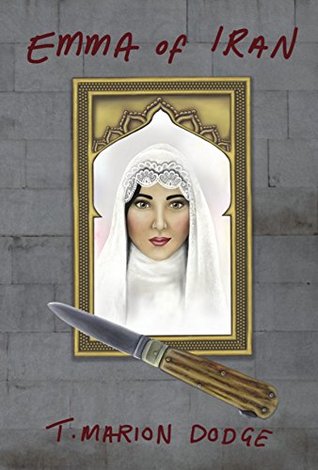T. Marion Dodge

Contact email: tmariondodge@zoho.com
My inspiration for Emma came to me while traveling, mostly in dreams. I have always had a great interest in the Iranian/Persian culture, and have had an almost obsessive interest in the Iran/Iraq war, dating back many decades. While traveling, I couldn't break away from dreaming, some so detailed that they actually are scenes in the book, including the ending. After writing the first chapter, the novel built around that. The story found me, I didn't find it.
I'm currently working on two follow ups, 'The Hunt for Sasha and Savanna' is taking most of my time. You can read my first draft chapter and the introduction of a new character on my blogs.
I've recently had to evacuate from the Big Island of Hawaii due to the volcano, which has slowed my writing down, but I'm heading back this week to experience the lava flow, hoping for additional inspiration.
An excerpt of Emma of Iran:
The Wedding of Emma and Hamid
Chapter 22 of Emma of Iran, by T. Marion Dodge
If the Imam had learned one thing, it was to be cautious when the young woman Emma approached with an idea. But once she stated her wishes and left, he thought her latest idea might work. He knew his flock, and knew they would all want to participate in the young couple’s wedding. Many of them had taken Emma and Hamid under their wing from the start. After praying to Allah for guidance, he decided it was a good idea and agreed to allow it. He announced the plan shortly after afternoon prayers, which only a few men attended that day.
But when word got out, the lobbying for key positions began. Soon the entire mosque was abuzz with the prospect of participating in the marriage of Emma and Hamid. If in Iran the families would surely have control over the proceedings, in the mosque it was suddenly chaos.
The Imam made it clear that he would speak only to the men of the families who wanted to be involved. But the reality soon became apparent: the women were in control and the men were simply doing as they were told. The Imam quickly realized he had no idea what he had gotten himself into.
The backroom negotiations became as intense as a military war room. None of the men were happy about the sudden disruption in their daily routines, as their wives were paying more attention to the wedding planning than to taking care of things at home.
Unfortunately, the Imam’s interactions with women, other than his own wife, were very limited.
The Imam and his wife had a much more sheltered and traditional marriage, and generally kept to themselves outside of the mosque. He had never given much thought to how people interacted with each other in their marriages behind closed doors. It seemed that when it came to American-Iranian women, they tended to have much more control over the dynamics of the family, even if it was behind the scenes.
By the third day he had given up trying to negotiate the escalating tensions. He isolated himself in his chamber, with a hand-written sign on his door saying, “No discussions today regarding the wedding, I am consulting Allah.” This prevented even the most desperate husbands from seeking relief.
By the fourth day the disputing families had decided to vote on which families would be responsible for the different rituals, which led to another dispute about whether the women would be allowed to vote. When this was suggested by one of the older and more conservative men of the mosque, every man in the room groaned at his stupidity for suggesting it, which was confirmed by the sudden angry outburst by the women in the room. The motion was quickly voted down, and the man who had suggested it silently skulked out of the room.
The argument changed to how much the traditional aspects must be fo

